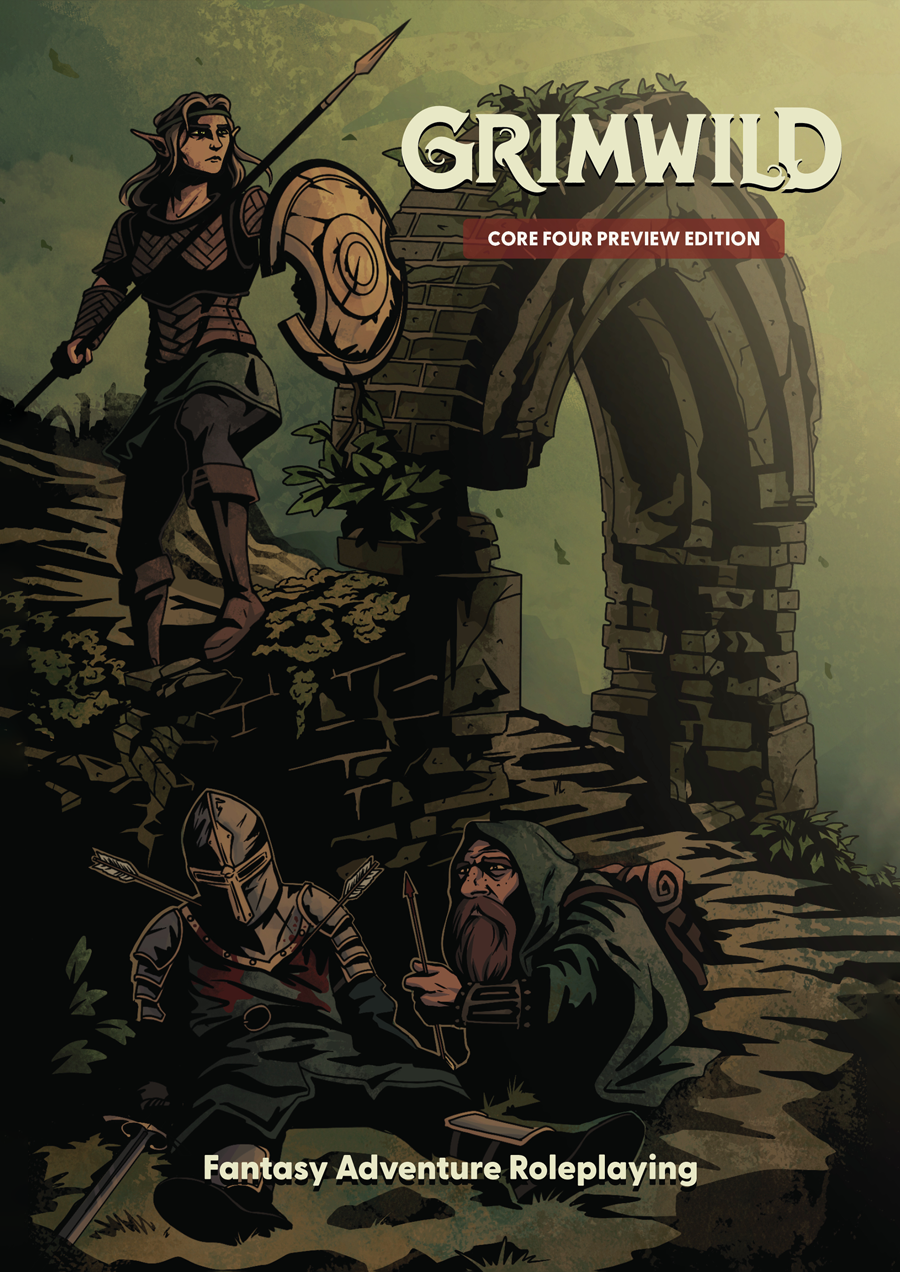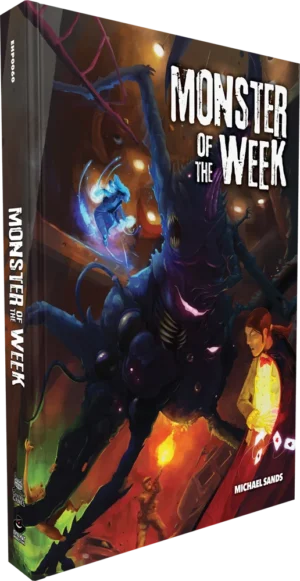Grimwild Dark Fantasy; Mature; Bleak; Narrative-Driven; Resource Management; Survival; Collaborative Worldbuilding
Grimwild is a cinematic, narrative-driven tabletop roleplaying game drawing inspiration from D&D-style heroic fantasy but aiming for a streamlined and low-prep experience. It focuses on collaborative storytelling, character-driven narratives, and player agency within a dark fantasy setting. Utilizing a modified Moxie system, Grimwild emphasizes dramatic action, minimizing detailed tracking and promoting fluid gameplay. The game caters to players seeking a blend of familiar fantasy tropes with narrative mechanics, offering unique systems such as freeform magic and PC Bonds to enhance the roleplaying experience.
Theme and Setting
Grimwild presents a dark fantasy world, leaning towards mature and bleak themes. The setting is designed to facilitate collaborative worldbuilding, allowing players and GMs to create emergent storylines. While explicitly drawing inspiration from D&D, Grimwild distinguishes itself by focusing on cinematic and character-driven narratives rather than strict adherence to traditional fantasy settings. The corebook and supplemental materials, such as the Nevermore zine, explore unsettling locations and necromantic horrors, emphasizing the grim aspects of the setting. Conversely, Gaelenvale offers a more cozy starting location for new adventurers, showcasing the versatility of the Grimwild system in accommodating diverse campaign tones.
Core Mechanics and Rules
The core mechanic in Grimwild revolves around rolling dice pools of d6s and keeping the highest result. The GM introduces d8s, referred to as 'thorns,' to represent difficulty, adding an element of chance and risk to player actions. However, a critical success always overcomes thorns, ensuring player agency and the potential for heroic moments.
Magic is handled through a freeform system; players describe the desired effect, and the mechanics determine the outcome based on the context of the spell's origin. There are no restrictive spell lists, promoting on-the-fly creativity. A unique element is the 'Vex' mechanic, which allows players to maintain control over their characters' reactions to fear and emotional turmoil, transforming moments of vulnerability into roleplaying opportunities.
Another core mechanic is the use of PC Bonds. These bonds represent the relationships between player characters, influencing dice rolls when aiding allies. Furthermore, players can introduce details into the story by spending 'spark,' a narrative currency earned through adversity and engaging in the world.
What Makes it Unique
Grimwild sets itself apart through its focus on streamlined mechanics and narrative emphasis. It aims to provide a D&D-inspired experience without the complexity, appealing to players who desire a low-prep, cinematic style of play. The system encourages collaborative worldbuilding, allowing players to shape the setting. Features such as freeform magic, PC Bonds, and the Vex mechanic contribute to a more immersive and character-driven experience. The Exploration Deck adds a tactile and randomized element to exploration, enhancing the sense of discovery. Additionally, the open licensing (CC-BY) of the Moxie ruleset encourages homebrewing and customization, allowing players to tailor the game to their preferences. Grimwild also includes solo play rules, which work seamlessly with the core system. This addresses a growing demand for solo RPG experiences.
Target Audience and Player Experience
Grimwild aims to attract a diverse audience, including:
- D&D 5E players seeking a less rules-heavy and more narrative-focused experience.
- OSR/NSR players who appreciate straightforward mechanics and sandbox gameplay.
- Narrative game enthusiasts who value player agency and collaborative storytelling.
Players can expect a game that prioritizes dramatic action and character development over simulation. The low-prep nature of the game and the collaborative worldbuilding aspects empower players to actively shape the story. The cinematic rules system and creative mechanics such as freeform magic and PC Bonds will provide memorable and engaging roleplaying opportunities. The overall experience is designed to be accessible and flexible, allowing players to seamlessly integrate their own settings and modules from other systems.



